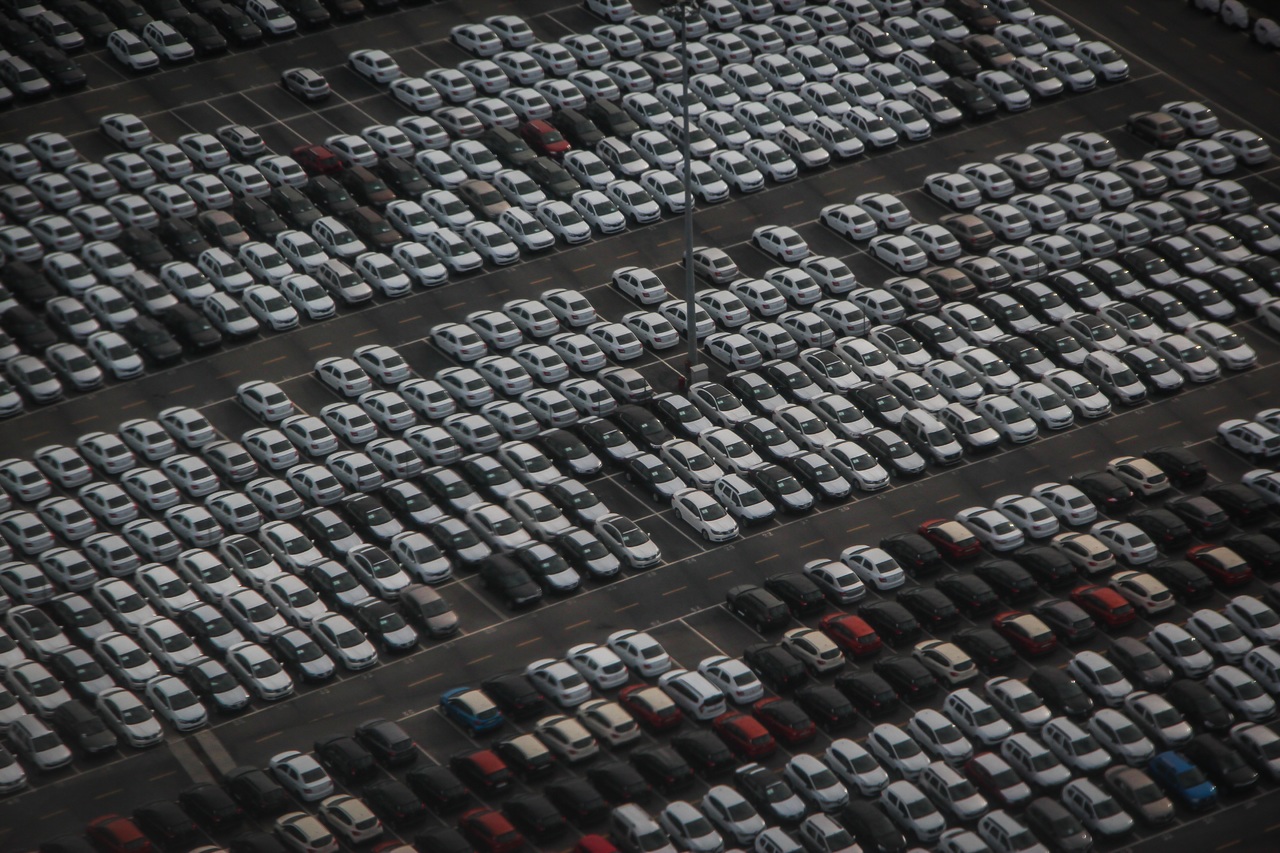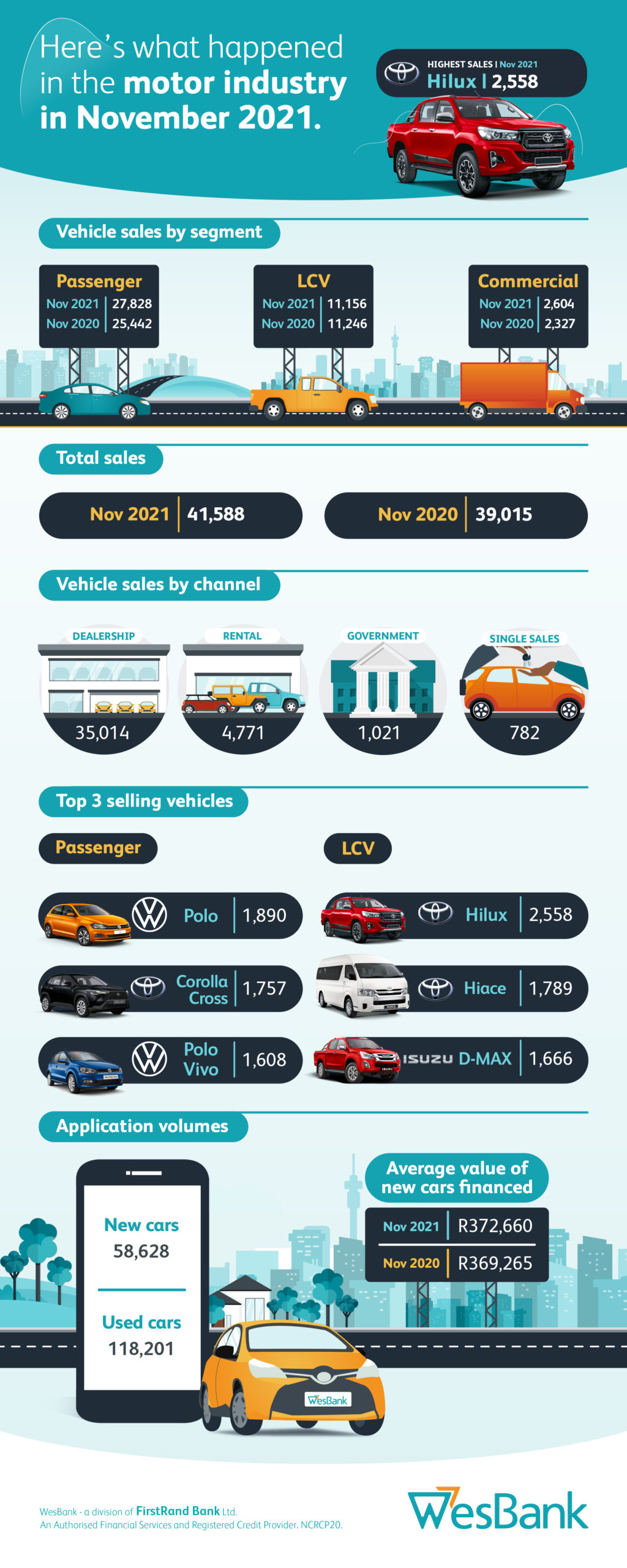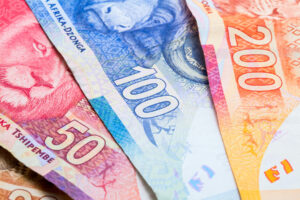Press Release: Wesbank
South Africa’s new vehicle market has been faced with numerous challenges over the course of this year but sale seem to be on the rise.
South Africa’s new vehicle market has faced many challenges over the course of 2021. However, the first interest rate hike in three years, consecutive fuel price hikes, a new variation on the pandemic theme and the return of load shedding didn’t deter sales too much.

The market’s resilience continued, recording 41,588 sales during November according to naamsa | the Automotive Business Council. This represents a 6.6% growth over the same period last year and a marginal improvement (553 units) over October.
“While it remains difficult to compare data over periods given the uncertainty of the pandemic for the past two years, a more certain sign of market improvement can be seen in a broader view of sales performance,” says Lebogang Gaoaketse, Head of Marketing and Communication at WesBank. “During 2020, just two months of the year exceeded 40,000 units and those were the first two months, prior to lockdown regulations being put in place; five months of 2021 have recorded sales of more than 40,000 units, including the past four months consecutively. Market conditions are certainly improving.”
Year-to-date, the market has recorded 428,131 sales, up 24.8% on 2020’s 342,956.

The Passenger Car market increased 9.4% to 27,828 units. Dealer sales in the segment grew similarly by 9%, injecting much-needed confidence into the retail network’s sustainability as well as an indication of consumer confidence.
The Light Commercial Vehicle segment declined marginally (-0.8%) to 11,156 units with dealer channel sales slightly higher (0.2%) than November last year.

The rental market once again provided a robust 4,771 sales across both segments, the current travel bans are likely to have an impact on this sector going into the new year.
“While the market is experiencing certain signs of continued recovery, the realities of rising interest rates and fuel prices is expected to impact affordability as household budgets still play catch-up from the ravages of the pandemic,” says Gaoaketse. “These factors are economically inevitable, but will certainly apply pressure to consumers.






